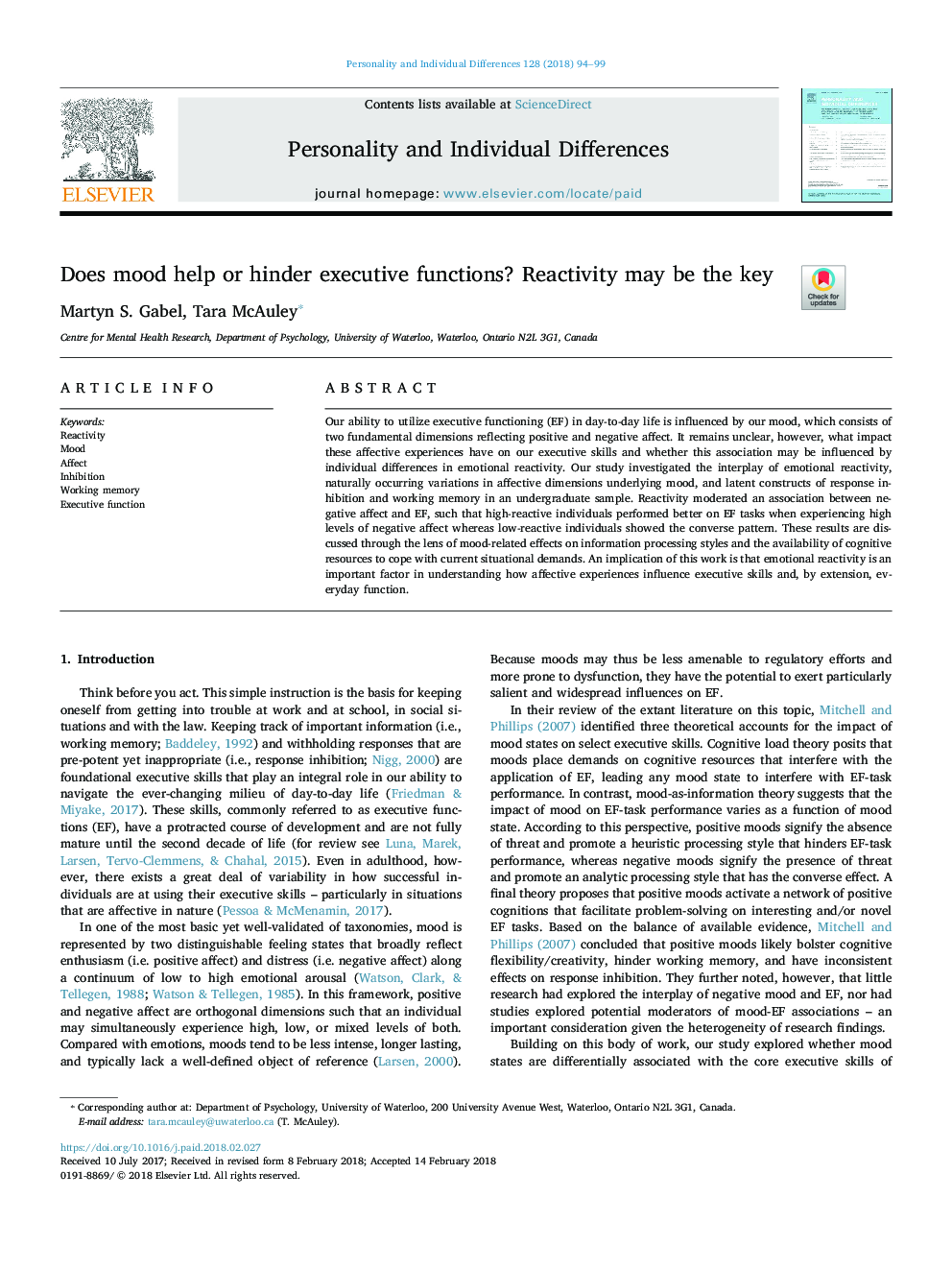| Article ID | Journal | Published Year | Pages | File Type |
|---|---|---|---|---|
| 7248819 | Personality and Individual Differences | 2018 | 6 Pages |
Abstract
Our ability to utilize executive functioning (EF) in day-to-day life is influenced by our mood, which consists of two fundamental dimensions reflecting positive and negative affect. It remains unclear, however, what impact these affective experiences have on our executive skills and whether this association may be influenced by individual differences in emotional reactivity. Our study investigated the interplay of emotional reactivity, naturally occurring variations in affective dimensions underlying mood, and latent constructs of response inhibition and working memory in an undergraduate sample. Reactivity moderated an association between negative affect and EF, such that high-reactive individuals performed better on EF tasks when experiencing high levels of negative affect whereas low-reactive individuals showed the converse pattern. These results are discussed through the lens of mood-related effects on information processing styles and the availability of cognitive resources to cope with current situational demands. An implication of this work is that emotional reactivity is an important factor in understanding how affective experiences influence executive skills and, by extension, everyday function.
Related Topics
Life Sciences
Neuroscience
Behavioral Neuroscience
Authors
Martyn S. Gabel, Tara McAuley,
